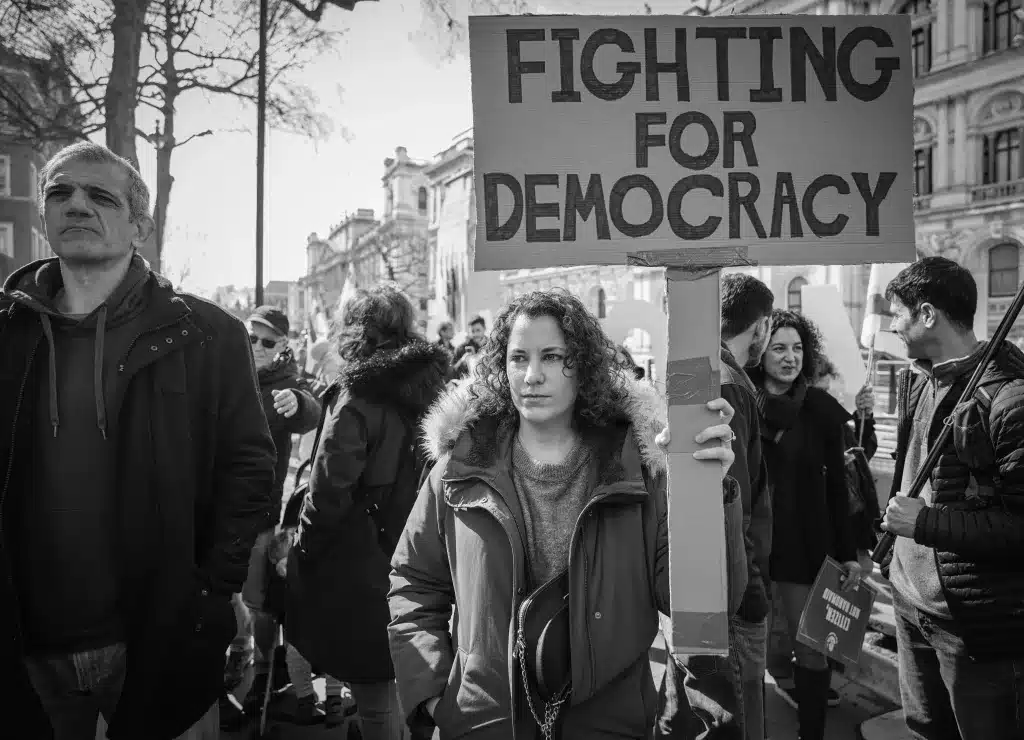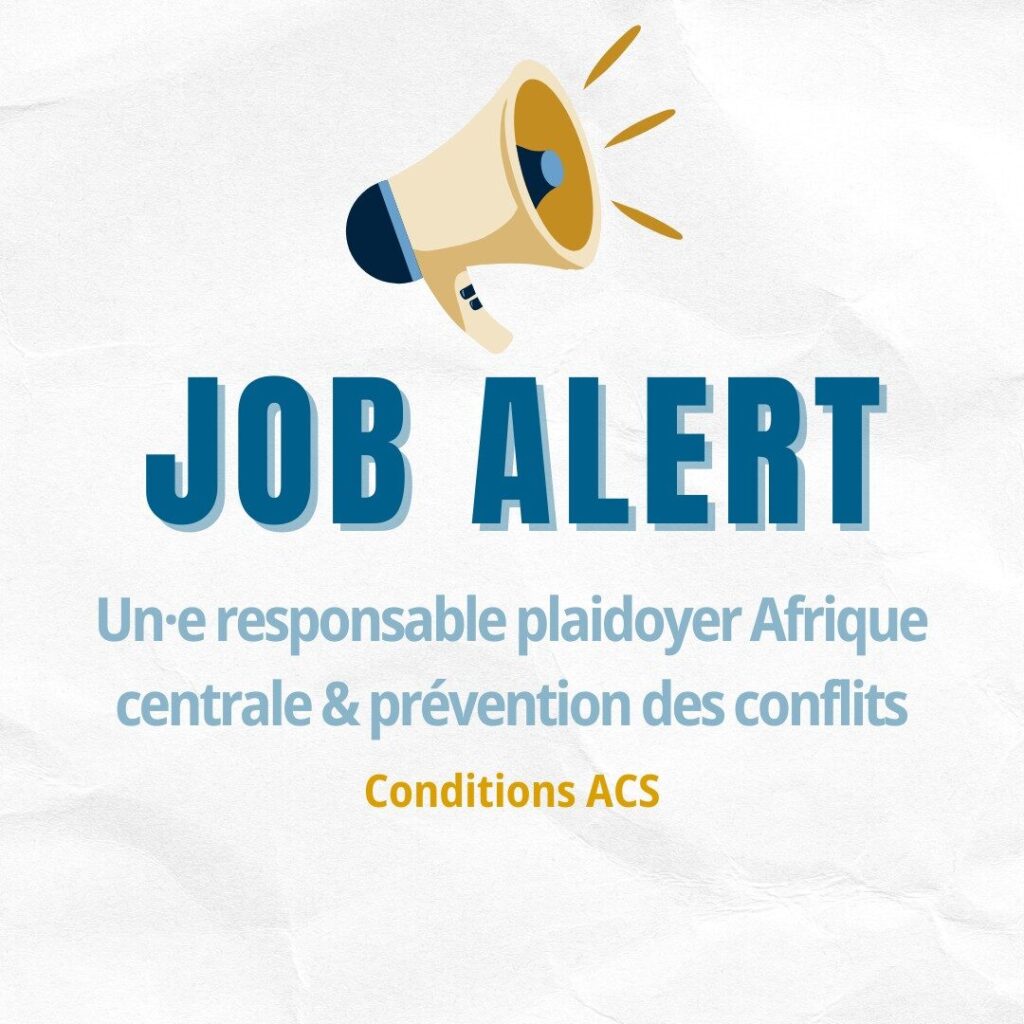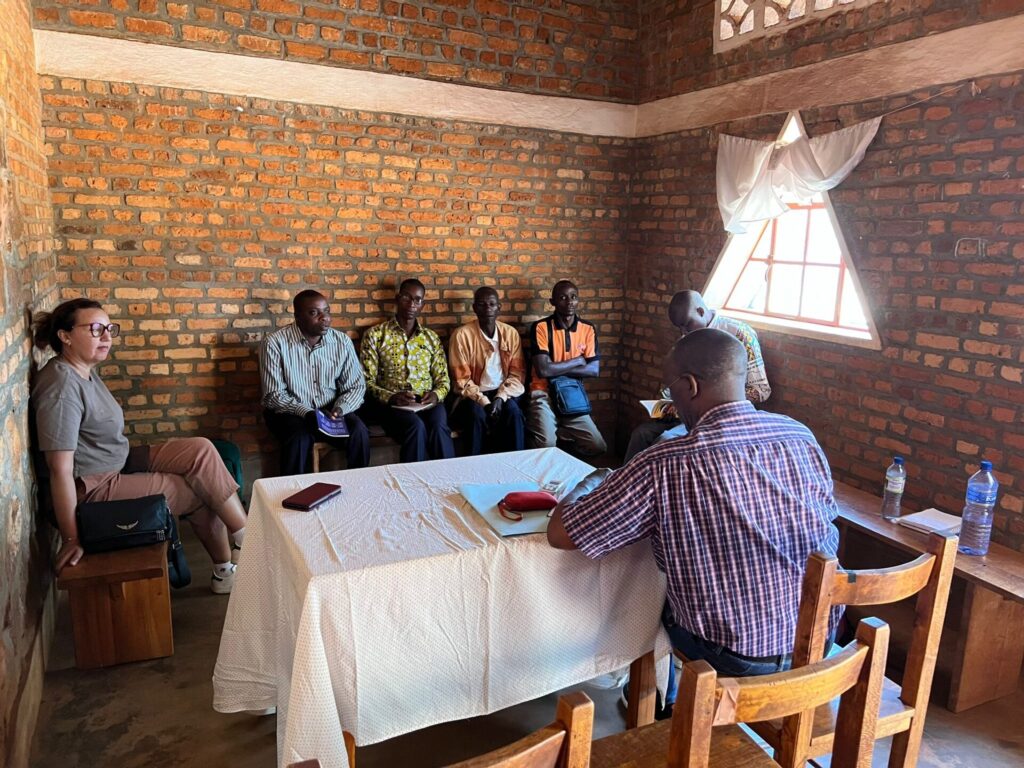The world is often racked by seemingly intractable conflicts, whirlwinds of disagreement and tension beyond resolution. Non-violent discussion is an essential component of democracy, providing a constructive means of resolving disputes.

The world is often racked by seemingly intractable conflicts, whirlwinds of disagreement and tension beyond resolution. The Israeli-Palestinian conflict is an example. This article explores the principles that could serve as a basis for resolving this conflict and draws on the experience of the Truth and Reconciliation Commission set up in South Africa.
THE ISRAEL-PALESTINIAN CONFLICT: A COMPLEX CONTEXT
L’histoire du conflit israélo-palestinien remonte à de nombreuses décennies. Des événements clés, tels que la déclaration Balfour de 1917 et la guerre israélo-arabe de 1948, ont marqué des tournants importants[1] [2]. They left deep scars and helped shape the current dynamics of the conflict. Regional and global players play a key role[3] [4]. Au cœur de la dispute se trouvent des revendications territoriales et nationales concurrentes, les droits des réfugiés, la question de Jérusalem, le partage des ressources, les inégalités et la sécurité. Les divergences d’interprétation de l’histoire et des droits historiques compliquent le problème.
THE FOUNDATIONS OF DEMOCRACY AND PEACE
Democracy, as a political system, offers fundamental principles that can serve as a guide for conflict resolution. The sovereignty of the Nation[5], non-violent deliberation, non-discrimination, reduction of social inequalities, and respect for human rights are essential democratic pillars.
La souveraineté de la Nation, principe fondamental de la démocratie, insiste sur le droit des peuples à déterminer leurs propres destins politiques. Dans le contexte israélo-palestinien, cela se traduit par la reconnaissance du droit à l’autodétermination des deux peuples. Les négociations de paix devraient respecter cette souveraineté et œuvrer vers la création d’États viables et souverains pour les Israéliens et les Palestiniens.
Non-violent discussion is an essential component of democracy, providing a constructive means of resolving disputes. Israeli-Palestinian peace talks have often been hampered by violence, undermining trust and making resolution of the conflict even more difficult.
Le conflit israélo-palestinien est marqué par des accusations de discrimination, qu’elles soient basées sur la religion, l’ethnicité, ou la nationalité. La construction de la paix exige l’élimination de toute forme de discrimination, garantissant l’égalité des droits et des opportunités pour tous.
Une approche démocratique nécessite la promotion d’une distribution équitable des ressources et des opportunités, réduisant ainsi les inégalités et créant les conditions propices à la coexistence pacifique.
Respect for human rights is a central pillar of democracy and an essential element of conflict resolution. Peace negotiations must ensure respect for basic human rights for all individuals involved. Mutual recognition of suffering and legitimate rights helps create a solid basis for reconciliation.
La démocratie, avec ses principes fondamentaux, peut ainsi servir de cadre pour la recherche de la paix dans le conflit israélo-palestinien. En mettant l’accent sur la souveraineté de la Nation, la discussion non violente, la non-discrimination, la réduction des inégalités sociales, et le respect des droits humains, les efforts pour résoudre ce conflit peuvent être guidés par des principes justes et équitables.
L’AFRIQUE DU SUD COMME MODÈLE DE RÉCONCILIATION
La transition de l’Afrique du Sud de l’apartheid à la démocratie offre des enseignements précieux pour d’autres conflits, y compris le conflit israélo-palestinien.
Alongside their specificities, the situations in Israel-Palestine and apartheid South Africa present similarities, particularly in terms of segregation, discrimination, inequitable sharing of territory and resources, lack of freedom of movement. , population displacement, violence, repression.
L’Afrique du Sud a réussi à négocier une transition pacifique dont l’un des aspects les plus remarquables a été la création de la Commission Vérité et Réconciliation (CVR). Celle-ci a permis aux victimes et aux auteurs d’atrocités de témoigner, de confesser leurs crimes et de chercher la réconciliation[6]. The TRC played a crucial role in healing and repair.
La réconciliation en Afrique du Sud a montré qu’il est possible de surmonter des divisions profondes grâce au dialogue, à la vérité et à la justice.
The Truth and Reconciliation Commission has been a crucial instrument for addressing past injustices. A similar approach could be considered to overcome deep divisions in the Israeli-Palestinian conflict.
The participation of all stakeholders, including marginalized groups, has been essential in South Africa. In the Israeli-Palestinian conflict, a lasting solution could be fostered by an inclusive approach involving all parties, including the diverse Palestinian and Israeli communities.
Direct negotiations played a crucial role in South Africa's transition. Encouraging direct and sincere talks between Israelis and Palestinians could be a way to build the trust needed to resolve the conflict.
La transition de l’apartheid en Afrique du Sud a été caractérisée par une démarche vers une démocratie inclusive. Dans le contexte israélo-palestinien, la promotion de principes démocratiques et la garantie des droits pour toutes les communautés pourraient être des éléments clés d’une solution pacifique.
La figure de Nelson Mandela en Afrique du Sud a joué un rôle majeur dans l’inspiration et l’unification du pays. Un leadership inspirant, capable de transcender les divisions, pourrait être un catalyseur essentiel pour progresser vers la paix au Moyen-Orient.
Reducing social and economic inequality has been a key goal in post-apartheid South Africa. Addressing inequalities in the Israeli-Palestinian conflict could help create fertile ground for peaceful coexistence.
Tout en tenant compte des spécificités de chaque contexte, il importe de considérer les principes de justice, de démocratie, de réconciliation, de dialogue et d’inclusion comme fondements de la résolution de tout conflit, y compris le conflit israélo-palestinien.
JUSTICE AND DEMOCRACY IN THE RESOLUTION OF THE ISRAEL-PALESTINIAN CONFLICT
To achieve a sustainable solution, several key elements must be taken into account. The few general principles below can facilitate understanding of how justice and democracy could contribute to the resolution of the Israeli-Palestinian conflict.
It would be useful, to help resolve the conflict:
- D’ouvrir le champ de la discussion et des échanges à l’ensemble des groupes, des organisations, etc. des sociétés israélienne et palestinienne et non de le limiter aux forces les plus belliqueuses,
- De se demander quelles seraient les grandes lignes d’un projet d’État et de société qui répondrait au mieux (ou en tout cas mieux que maintenant) aux aspirations tant des Israéliens que des Palestiniens (les gens en chair et en os),
- To examine the question of reconciliation and that of deliberation in deeply divided societies,
- D’aborder la question de garanties institutionnelles, légales et autres pour garantir les droits et la sécurité de tous,
- D’aborder la question de la justice et des inégalités,
- To rely on non-discrimination as the foundation of the transition process.
Les droits humains doivent être au cœur de toute discussion démocratique sur la résolution du conflit. Cela inclut le respect des droits à l’autodétermination, à la sécurité, à l’égalité et à la dignité pour toutes les parties impliquées[7].
International actors have a key role to play in promoting justice and peace. International pressure, mediation and the efforts of the international community can support the conflict resolution process[8] [9].
Paulin MBecke.
[1] Khalidi, W. (2007). The Iron Cage: The Story of the Palestinian Struggle for Statehood. Beacon Press.
[2] Shlaim, A. (2007). The Iron Wall: Israel and the Arab World. WW Norton & Company.
[3] Said, E.W. (1979). The Question of Palestine. Vintage.
[4] Farsakh, L. (2005). Palestinian Labor Migration to Israel: Labor, Land, and Occupation. Routledge.
[5] Here we must distinguish the sovereignty of the Nation from national sovereignty. The first refers to the fact that political power is supposed to emanate from the Nation and be responsible to it. It is an essential foundation of democracy. The second concerns any political regime, including authoritarian or totalitarian, and is often invoked to justify acts in conflict with rights, justice and peace.
[6] Tutu, D. (1999). No Future Without Forgiveness. Picture.
[7] An-Na’im, A. A. (2008). Human Rights in Cross-Cultural Perspectives: A Quest for Consensus. University of Pennsylvania Press.
[8] Dawisha, A.I. (2005). Arab Nationalism in the Twentieth Century: From Triumph to Despair. Princeton University Press.
[9] Stern, Y. (2018). The Conflict Over the Conflict: The Israel/Palestine Campus Debate. SUNY Press.





